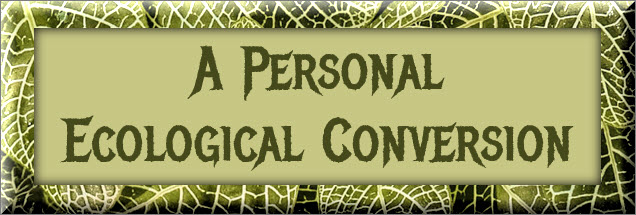|
Fr. Brian Cavanaugh, TOR
T he Book of Genesis opens with a poetic verse of the Creation account "of the heavens and the earth when they were created" Gen 2:4 (RSVCE2).
And God said, “Let there be light”; and there was light. And God saw
that the light was good; and God separated the light from the
darkness. God called the light Day, and the darkness he called
Night. And there was evening and there was morning, one day.
And God said, “Let there be a firmament in the midst of the waters,
and let it separate the waters from the waters.” And God made the
firmament and separated the waters which were under the firmament
from the waters which were above the firmament. And it was so. And
God called the firmament Heaven. And there was evening and there was
morning, a second day.
And God said, “Let the waters under the heavens be gathered together
into one place, and let the dry land appear.” And it was so. God
called the dry land Earth, and the waters that were gathered
together he called Seas. And God saw that it was good. And God said,
“Let the earth put forth vegetation, plants yielding seed, and fruit
trees bearing fruit in which is their seed, each according to its
kind, upon the earth.” And it was so. The earth brought forth
vegetation, plants yielding seed according to their own kinds, and
trees bearing fruit in which is their seed, each according to its
kind. And God saw that it was good. And there was evening and there
was morning, a third day.
And God said, “Let there be lights in the firmament of the heavens
to separate the day from the night; and let them be for signs and
for seasons and for days and years, and let them be lights in the
firmament of the heavens to give light upon the earth.” And it was
so. And God made the two great lights, the greater light to rule the
day, and the lesser light to rule the night; he made the stars also.
And God set them in the firmament of the heavens to give light upon
the earth, to rule over the day and over the night, and to separate
the light from the darkness. And God saw that it was good. And there
was evening and there was morning, a fourth day Gen. 1:1–19
(RSVCE2).
This Creation chronicle clearly declares the world in which we
breathe, where we see with the light of the sun, where we hear
melodies of the wind rustling through the trees, is indeed a sacred
world.
There is a repeating rhythm in these verses — “God said: ‘Let there
be’…‘And so it happened’…‘God saw how good it was.’” God speaks a
life-giving, creative word and delights in how good it is.
Pope Francis writes in the opening paragraphs of his Encyclical
“Laudato Si’: On Care for Our Common Home”:1 1 “Laudato si’, mi’ Signore” – “Praise be to you, my Lord”. In the
words of this beautiful canticle, St. Francis of Assisi reminds us
that our common home is like a sister with whom we share our life
and beautiful mother who opens her arms to embrace us. “Praise be to
you, my Lord, through our Sister, Mother Earth, who sustains and
governs us, and who produces various fruit with coloured flowers and
herbs”. [1] 2. This sister now cries out to us because of the harm we have
inflicted on her by our irresponsible use and abuse of the goods
with which God has endowed her. We have come to see ourselves as her
lords and masters, entitled to plunder her at will. The violence
present in our hearts, wounded by sin, is also reflected in the
symptoms of sickness evident in the soil, in the water, in the air
and in all forms of life. This is why the earth herself, burdened
and laid waste, is among the most abandoned and maltreated of our
poor; she “groans in travail” (Rom 8:22). We have forgotten that we
ourselves are dust of the earth (cf. Gen 2:7); our very bodies are
made up of her elements, we breathe her air and we receive life and
refreshment from her waters.
I’m reminded of a time in Santa Barbara, CA, during the mid-1970s,
when I had a profound conversation with Grandfather Semu Huaute, a
Chumash healer. We were walking on the land when he told me: “We
walk on God’s altar, the trees are his candlesticks, worship.”
Suddenly, St. Francis’ Canticle of Creation took on a whole new
meaning for me.
Franciscan theology reflects the experience of St. Francis who saw
all creation having its source in the creative, fruitful word of
God. A Franciscan vision calls for a respect for all creation, and a
deep sense of responsibility for the whole created order. It is
indeed a sacred world upon which we need to tread softly.…
The renowned Franciscan scholar, Fr. Zachary Hayes, OFM, wrote: Power, control, greed, manipulation, and all the ways in which we
seek to use the world of nature ought to be moderated by a sense of
respect and responsibility. The world is not only a physical system
that will deliver things into our hands for our physical enjoyment.
It is also the matrix for our moral and spiritual development.2
The time is now for each of us to develop a personal ecological
conversion; to develop a profound respect for and deep sense of
personal responsibility for the whole created order. “To walk softly
upon the earth,” according to Navajo wisdom.
This same world wherein God still delights and sees how good it is.
✤ ✤ ✤ ✤ ✤ ✤
1. Pope Francis,
Encyclical Letter Laudato Si’:
On Care for Our Common Home
2. Zachary Hayes, OFM, “Spirit and Life”, Vol. 2, 1992, p. 101
|

